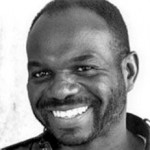As clouds threatened a downpour in New York’s Greenwich Village last night, actress and longtime AIDS activist Gloria Reuben paused on the red carpet on her way into the Sixth Annual POP (Positively Outstanding Programming) Awards to discuss America’s TV viewing habits. “For the most part, the American public wants to put HIV out of their minds,” she told POZ. “But I think that it’s damaging more than ever not to have [HIV] in the media as prominently as it needs to be.”
 |
| POP host Gloria Reuben |
Reuben was arriving at the IFC Center to host the POP Awards, which honor HIV/AIDS-focused cable television programming in categories such as original film, documentary, biographical program, public service announcements and news coverage. The awards are sponsored by Cable Positive; the national nonprofit organization that, in Reuben’s words, “brings light to the cable channels that are doing something—and programmers, writers, directors and producers that are getting the message out there.”
Reuben herself won wide favor for portraying HIV positive Jeanie Boulet on NBC’s ER from 1994 through 2000, a role that earned her several Emmy nominations and a Golden Globe nomination. This year, she played opposite Queen Latifah in Life Support, an HBO film based on the real-life Brooklyn ASO Life Force.
Steve Villano, President and CEO of Cable Positive, says his mission is to make sure characters and stories like these are heard loud and clear. He argues that his group’s efforts—providing HIV programming of its own while honoring the works of others—are a shot in the arm that the media can’t really do without. “The industry has responded exceptionally well,” Villano told POZ. “There’s more [HIV] programming being done on the various cable networks, and there are more outstanding films being made on the subject.”
This year’s awards program included a special new prize, given to Chairman and CEO of Playboy Enterprises Christie Hefner: the first-ever Educational Advocate of the Year. “Christie’s been an incredible, passionate believer in social justice and not giving up this fight,” Chuck Ross, publisher of the industry magazine TelevisionWeek, told the audience (who had arrived in their seats fully drenched).
Indeed, Hefner’s Playboy Foundation has been a driving force in the fight against AIDS since 1983, and Playboy was one of the first U.S. corporations to fund AIDS research. “When we first got involved, being diagnosed with HIV/AIDS was a death sentence,” Hefner said to POZ before the show, “And today that needn’t be true. But we have to ensure that people have access to treatments and that they are affordable. We’ve come a long way from the days when Randy Shilts wrote And the Band Played On and we had an administration that wouldn’t even utter the name of the disease—but there’s still a long way to go.”
Hefner was applauded for, among other accomplishments, raising $30 million to establish the CORE Center in Chicago, a health facility aimed at treating HIV and other communicable diseases. Said Ross, “The Center represents Christie’s core values of compassion, concern and commitment to ending this epidemic. It provides the highest quality medical care for the people who could least afford it.”
The rest of the night belonged to the broadcasters. CNN came out on top as Network of the Year, in addition to receiving awards for Stopping a Killer and Inside Africa: World AIDS Day, two news investigations reported by Dr. Sanjay Gupta, as well as Christiane Amanpour’s documentary, Where Have All the Parents Gone?
Other big winners were Univision for its Spanish-language programming and PSAs; Showtime for the film 3 Needles; LOGO for Noah’s Arc; and MTV for its Be an Authority PSA campaign, which urged the current generation of young people to educate themselves so they can educate others.
The Be an Authority spot shown during the awards presentation featured a teenage son warning his single father about the dangers of HIV and telling him that we are no longer living in an age of “free love.” “As people 25 and under, we definitely have grown up our whole entire lives with AIDS,” says Barry Flanagan, who directed the spot. “We should be telling folks who are 60, 50, 40 about AIDS. We could be the authority on this.”
Cable Positive’s Villano has no doubt that television programming remains an ideal teaching method. “Education is still the only vaccine that we have to prevent the spread of HIV/AIDS,” he says. “So we at Cable Positive feel that we have a very important mission and a very powerful tool to deliver it. And that medium is television.”
On June 27th, National HIV Testing Day, a new documentary—“Women and HIV”—the third installment of Cable Positive’s documentary series Positive Voices, will make its debut on cable TV. The documentary features POZ’s own Regan Hofmann and five other women infected or affected by HIV: Marvelyn Brown, Gwen Carter, Lillian Cotto-Anglada, Brenda Starks-Ross and Vanessa Vendrell. Check back at POZ.com for airing details.






Comments
Comments